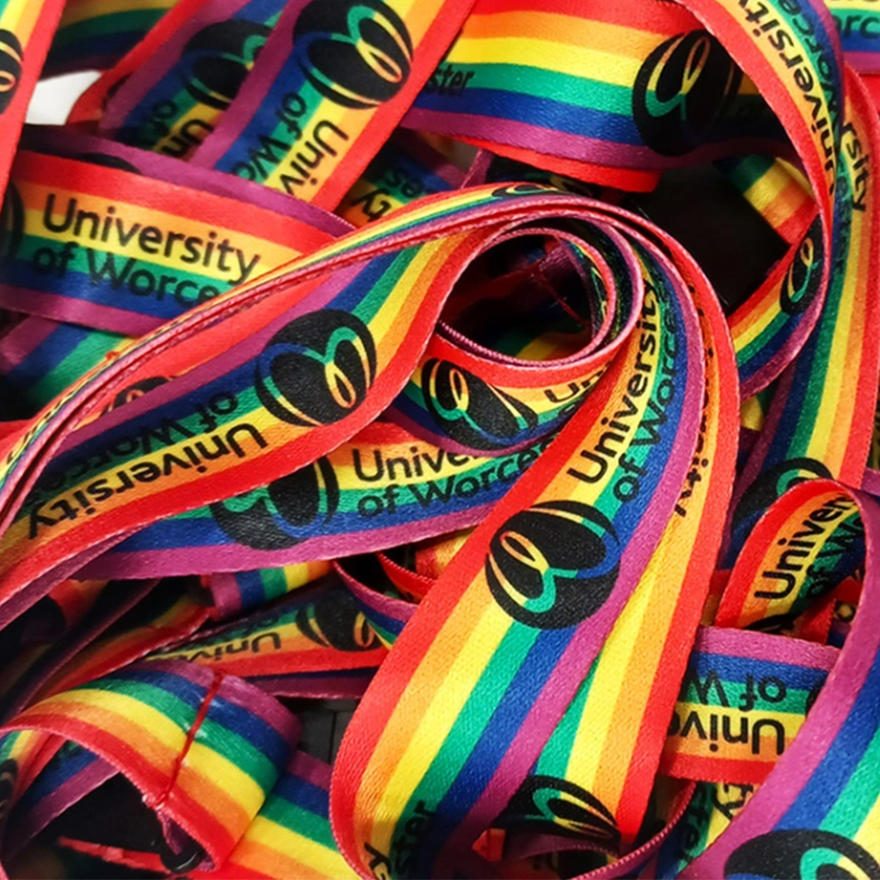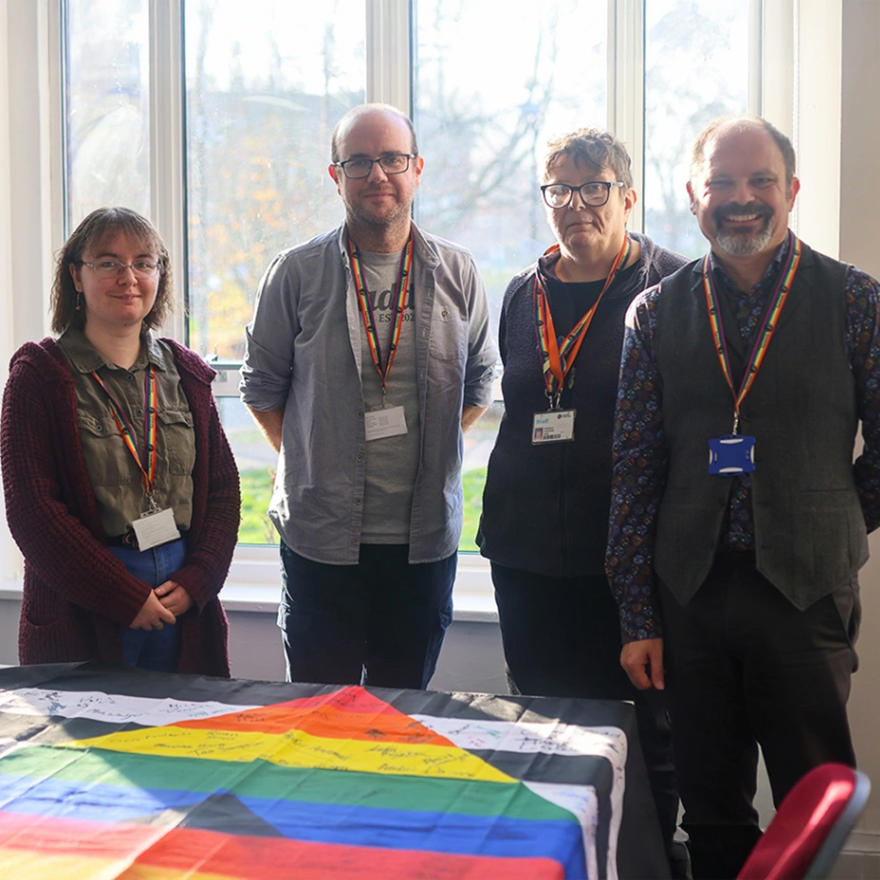5 Ways to be an LGBTQ+ Ally
For many, university is a time of self-growth and personal development. Many LGBTQ+ people decide to come out when they are at university. It’s important to remember that if someone comes out to you, they see you as someone they trust as they are sharing something personal with you. It can be difficult to know best how to react when someone you know shares that they are LGBTQ+. The 5 steps below will help you to understand some ways in which you can support them, although remember that everyone’s experiences are unique, and the support needed may look different for each individual.

1. Use inclusive language
It’s time to learn your pronouns!
People wish to be identified in a variety of ways so make sure to take the time to ask your colleague, friend or loved one what their preferred pronouns are. The most common pronouns you may have come across are he/him, she/her and they/them. However, there are lots of different combinations of how people choose to express themselves.
Using inclusive language and referring to people as ‘they’ before you know their pronouns or a group of people as ‘folks’ instead of ‘girls’ or ‘boys’ can be really helpful. Try to start integrating gender-neutral terms into your vocabulary and watch out for any offensive language you might be using unintentionally.
Remember, mistakes happen! If you get someone’s pronouns wrong or forget, it isn’t the end of the world, just correct yourself and try to remember for next time. Trust me, your colleague, friend or loved one will really appreciate it!
2. Take part in LGBTQ+ events
Now you know your pronouns, another way to show support is through attending events as an ally. This isn’t something you have to do but it’s a nice gesture and will help introduce you to the community you are supporting! It could be a pride parade, a local meet up at a queer café or a drag night!
3. Do your research
As an ally, one of the most important things you can do is to educate yourself. Whether this is listening to your friend, loved one or colleague sharing their experiences with you, or by doing your own research into the LGBTQ+ community online.
A good place to start with research is learning things like LGBTQ+ terminology, history, and the struggles still encountered by the community today. This research will help you to develop your understanding of how the world views and treats the LGBTQ+ community as well as allowing you to recognise your own privileges.

4. Be active
Being an ally is not just a label you give yourself, it’s about taking action! For example, being supportive of LGBTQ+ rights and taking a stand against anti LGBTQ+ jokes. It’s important to let those around you that you won’t tolerate these comments towards the community and that as an ally you find them offensive. These jokes and comments can seem meaningless but they are harmful. Like with pronouns, language matters!
5. Ask for guidance
If you accidentally misgender someone, or use the wrong pronouns or label, don’t panic! Just make sure to apologise and correct yourself - your research will come in handy here! It might be a good opportunity to ask the person you are talking with to help correct you when this happens. They will see that you are making the effort to learn and support them.
There are lots of great resources available online to help you educate yourself and become a better ally, and hopefully this short guide has given you a good idea.
You can even join the university’s LGBTQ+ network, there is one for both staff and students.
Blog uploaded: 01/07/2025